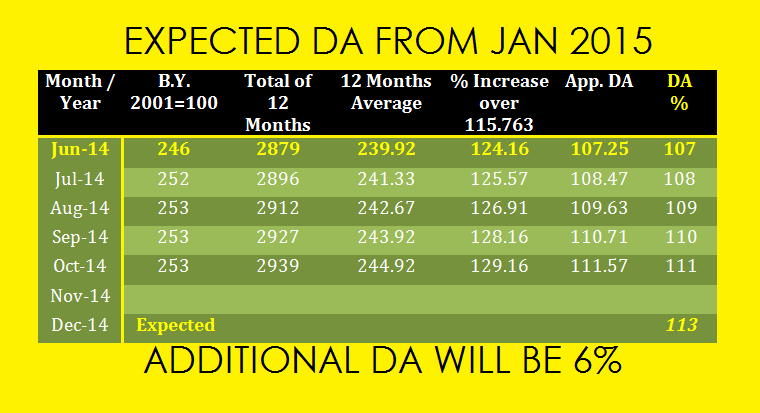NDA AND UP TWO SIDES OF SAME COIN – EDITORIAL POSTAL CRUSADER DECEMBER-2014
New Central Govt. under the leadership
of our Hon’ble Prime Minister Shri. Narendra Modi has completed six
months in office. As far as the common people and working class of this
country is concerned, no positive action has been taken by the Govt. to
mitigate their woes and grievances. Instead much negative steps are
taken during this six months period.
Government has withdrawn the guidelines
which controls the pricing of essential medicines through National
Pharmaceutical Pricing Authority. As a result, the prices of essential
medicines for treatment of cancer, blood pressure, colestorol,
diabetics, heart-deceases etc will shoot up in the market. Prices of
medicines for treatment of cancer itself which now costs Rs.8500 may go
upto Rs.1,08,000/-. Pharmaceutical corporate companies are the
beneficiaries.
Government has made its intention clear
that the number of gas cylinders (LPG) per year will be reduced from
existing 12 to 9 and also to link it to Aadhar and subsidies through
direct cash transfer to Bank accounts. Earlier UPA Govt. has reduced the
gas cylinders from 12 to 9 but subsequently it has been withdrawn the
order due to widespread protests.
Govt. has deregularised the pricing of
diesel. Earlier UPA Govt. has deregulated petrol prices and now the NDA
Govt. has deregularised diesel price. Petroleum companies will now be
free to decide the prices of petrol and diesel. Even-now the prices of
petrol and diesel in India are 40% higher than the prices in the
international market.
Govt. has decided to allow 100% Foreign
Direct Investment (FDI) in Defence Production. Earlier this move of the
UPA Govt. was opposed by NDA saying that it is against the national
interest and security of the country. Defence production will now be
completely privatised.
Govt. has decided to allow 100% FDI in
Railways and also public-private-partnership (PPP). During his speech
delivered in Australia Prime Minister has called upon the Industrialists
of that country to country to invest in Indian Railways. Doors for
privatisation of Railways is opened.
Govt. has decided to allow 49% FDI in
Insurance sector. The bill for amending the Insurance Act for this
purpose is pending in the Parliament and Govt. spokes person has hoped
that the bill will be passed in this winter session of Parliament.
Govt. has decided to disinvest the share
of all public sector nationalised banks upto 48%. Road map for
privatisation of banking sector is drawn.
Govt. has made it clear that 100% FDI
will be allowed in Pension Funds. The future of those who are under the
New Pension Scheme will be uncertain due to Pension Fund Privatisation.
Govt has decided to sell the shares of
profit making public sector undertakings such as ONGC, BHEL, coal India
Ltd. etc to the tune of 25%.
Govt. has made it clear that Indian Post
Office Act 1898 will be amended to facilitate grant of licences to
multi-national courier services. This will pave way for privatisation of
postal sector.
While extending red-carpet welcome to
the corporates and multinational companies, the Govt. has declared that
all the labour laws which put hurdles before them will be amended. Govt.
has already moved in Parliament Labour Law amendments to remove all the
protections and justifys now enjoyed by the working class including
justify to strike and justify to form unions.
Government has declared that all the
loss-making public sector undertakings will be closed or privatised. Air
India, BSNL etc. are all in the hit-list.
Government has made it clear that its
slogan is “minimum government and maximum governance”. It has imposed a
total ban on creation of new posts and for filling up of posts which are
lying vacant for more than one year.
Regarding Central Government Employees,
none of their legitimate demands are conceded by the Government. DA
merger, Interim Relief, Inclusion of Gramin Dak Sevaks (GDS) under 7th
CPC, Date of effect of 7th CPC as 1-1-2014, Removal of 5% condition for
compassionate appointment – everything stands rejected.
Regarding Postal employees none of the
39 demands raised by Postal JCA (NFPE & FNPO) is settled. Three
lakhs GDS are still not included in the 7th CPC and their future is
uncertain, Revision of wages of Casual, Part-time, contingent employees
with effect from 01-01-2006 is pending before the Government from 2008
onwards. Cadre Restructuring, issues of Postmaster Cadre, Accountants,
System Administrators, MMS etc. all pending or rejected.
It is in the above background the
Central Trade Unions, JCM National Council staff-side, Confederation of
Central Govt. Employees & Workers and Postal JCA has decided to
organise following agitational programmes.
1. As a part of nation-wide agitation by
all Central Trade Unions including BMS, INTUC, HMS, AITUC, CITU etc.
has decided to organise Parliament March on 5th December, 2014 to
protest against the anti-people, anti-labour policies of the NDA
Government. In the march they will declare future struggle programmes.
2. All the organisations in the JCM
National Council (Staff side) including Railways, Defence and
Confederation has decided to organise a National Convention on 11th
December, 2014 to decide future course of action for realisation of the
legitimate demands of the Central Government employees.
3. Postal JCA comprising NFPE, FNPO,
AIPEU-GDS (NFPE) and NUGDS has decided to organise a massive Parliament
March of 20000 Postal& RMS employees including Gramin Dak Sevaks and
Casual, Part-Time, Contingent employees on 4th December, 2014 demanding
settlement of 39 point charter of demands. PJCA has decided to go for
indefinite strike.
NFPE calls upon the entirety of five
lakhs Postal employees to participate in all the above programmes and
make it a grand success. Let us pledge that we shall continue our
struggle till success.
Source : http://confederationhq.blogspot.in/2014/12/editorial-postal-crusader-december-2014.html




